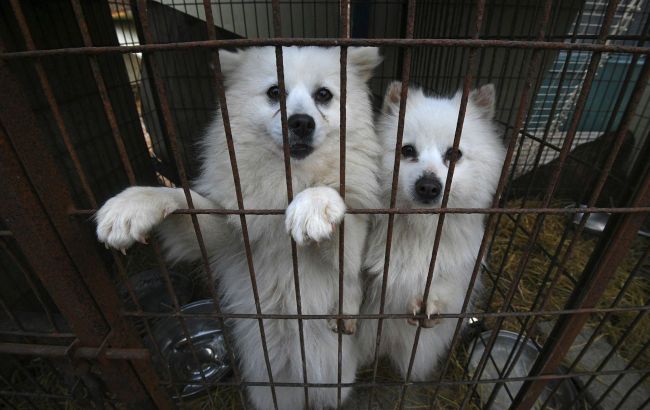South Korea bans dog meat production
 South Korea bans dog meat production (Getty Images)
South Korea bans dog meat production (Getty Images)
South Korea has made a historic decision to cease the consumption and production of dog meat, a tradition that has spanned centuries, according to Sky News.
The ban gained momentum with the ascent of President Yun Suk Yol to power, whose public support for the prohibition increased. Notably, President Yol himself adopted six dogs and eight cats from a shelter.
While the consumption of dog meat has been a longstanding practice in South Korea, recent surveys indicate a decline in demand, primarily among the elderly. Previously considered a method to enhance endurance during humid summers in the country, dog meat consumption has dwindled.
New law
The new law, effective from 2027, prohibits the breeding, slaughtering, and selling of dogs and dog meat in South Korea. Violators face imprisonment for up to three years or fines of up to 30 million won (22,737 USD).
Additionally, the decision includes a ban on establishing new dog farms, combat facilities, culinary, and processing enterprises from the moment the resolution is adopted. However, penalties for consuming dog meat have not been outlined in the current parliamentary discussions.
Entrepreneurs have announced plans to appeal the decision and organize protests. Activists claim that dogs are electrocuted or hanged, though industry representatives argue that the slaughtering process has become more humane.
How developed is the dog meat industry?
Estimates regarding the number of dogs bred for meat production vary. South Korea's Ministry of Agriculture counted approximately 1,100 farms breeding 570,000 dogs in 2022, servicing around 1,600 restaurants. The Korean Association opposing the ban asserts that the prohibition will impact 3,500 farms producing 1.5 million dogs and 3,000 restaurants.
However, the government has anticipated these repercussions and will introduce a three-year grace period along with business support to facilitate the transition away from the trade.
South Korea has previously attempted to abandon dog meat production, but protests and concerns about the livelihoods of farmers and restaurant owners led to the failure of those efforts. As of today, however, historic changes are underway in South Korea.

